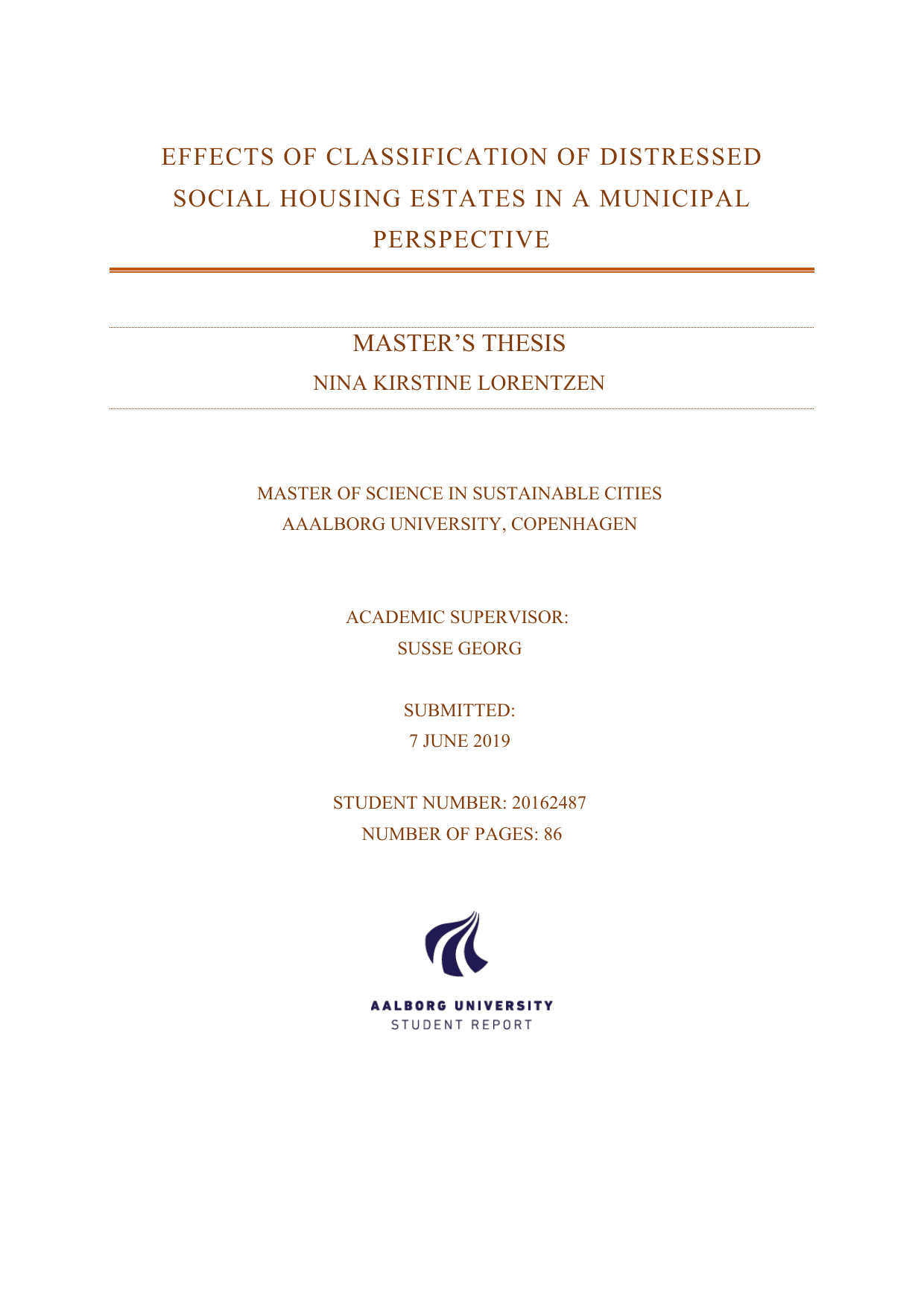
Effects of Classification of Distressed Social Housing Estates In a Municipal Perspective
Author
Term
4. Term
Publication year
2019
Submitted on
2019-06-06
Pages
86
Abstract
The planning approach and the general discourse of distressed social housing estates have taken a turn over the last years. This thesis examines the possible effects of a classification of these distressed housing estates in line with the government’s ghetto legislation on the municipal work for the development of the areas. The theoretical frame for the thesis draws on insights from sociology and organizational theory regarding the planning approach of governments, the municipality as a metagoverner and the transformation of the public sector into an arena for co-creation. Municipal strategies and interviews with key actors are the basis for the empirical findings. The results of this thesis point to a disruption of the established norms and rules of a co-creation, when the municipality has to comply with criteria set by the government, and this creates a hierarchy in the partnership between actors. It changes the prioritization and the flexibility for the initiatives and work for the distressed areas, and it also creates an underlying concern for loss of this flexibility of prioritization. The ghetto legislation has limitations for the municipal work for distressed areas, but it also creates opportunities in the right context. Here, it can an argument for structural changes, that can lie close to the original visions and ideas of housing organizations and municipalities, where the funding from The National Building Fund can aid the existing visions for the distressed areas.
Keywords
Documents
